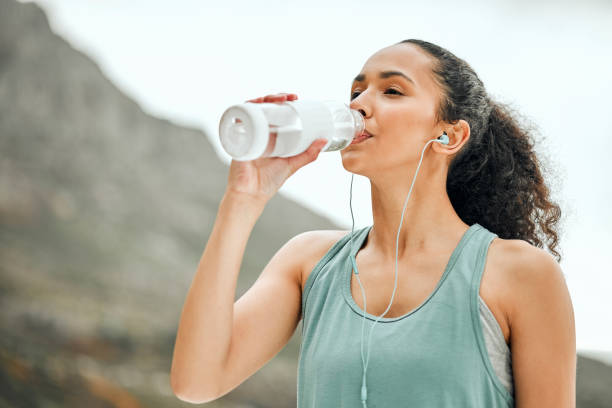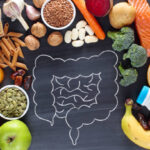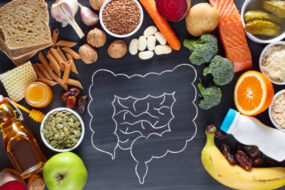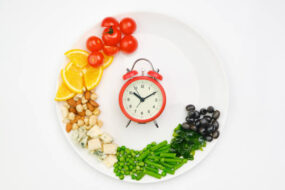
Water is essential for life—it makes up about 60% of our body and plays a crucial role in nearly every bodily function. Yet, despite its importance, many people do not drink enough water daily. Hydration affects everything from brain function and energy levels to skin health and digestion. But how much water do you really need, and what are the signs you might be falling short?
Let’s dive into the importance of hydration, the signs of dehydration, and tips for staying properly hydrated throughout the day.
Why Hydration is Vital for Your Health
Hydration is much more than just quenching thirst; it is fundamental to maintaining overall health. Here’s why staying hydrated is so crucial:
- Supports Cellular Functions
Every cell in your body relies on water to function properly. Water helps transport nutrients, oxygen, and waste products to and from cells, supporting metabolic processes and energy production. - Regulates Body Temperature
Water helps regulate body temperature through sweating and respiration. Staying hydrated is especially important during physical activities or hot weather to prevent overheating and maintain optimal performance. - Promotes Digestive Health
Water is necessary for healthy digestion. It helps dissolve nutrients and aids in the absorption process. Additionally, adequate hydration helps prevent constipation by softening stools and promoting regular bowel movements. - Maintains Joint and Muscle Function
Water acts as a lubricant for joints and helps cushion the muscles, reducing the risk of cramps, strains, and injuries. Proper hydration can also help alleviate muscle soreness and improve physical performance. - Supports Cognitive Function
Even mild dehydration can affect cognitive function, leading to difficulties with concentration, memory, and mood. Drinking enough water helps maintain mental clarity and keeps you focused and alert throughout the day. - Enhances Skin Health
Hydration is key to maintaining healthy, glowing skin. Drinking enough water can improve skin elasticity, reduce dryness, and prevent premature aging. Hydrated skin is better able to protect itself from environmental damage.
How Much Water Do You Really Need?
The amount of water an individual needs can vary depending on several factors, including age, weight, gender, climate, activity level, and overall health. The standard recommendation is to drink 8 cups (64 ounces) of water per day, also known as the “8×8 rule.” However, this is a general guideline, and your specific hydration needs may differ.
Here are some more personalized guidelines:
- Listen to Your Body: Thirst is your body’s way of signaling that you need more water. Paying attention to your thirst cues is one of the simplest ways to gauge your hydration needs.
- Consider Your Activity Level: If you are physically active, you will need more water to compensate for the fluid lost through sweat. Aim for an additional 1.5 to 2.5 cups of water for each hour of exercise.
- Factor in Climate and Environment: Hot or humid weather increases the amount of water your body loses through sweat. Similarly, high altitudes can increase your hydration needs.
- Adjust for Health Conditions: Certain health conditions, like fever, diarrhea, or kidney problems, may require increased fluid intake. If you are pregnant or breastfeeding, you will also need more water.
Tip: A general rule of thumb is to drink at least half of your body weight in ounces of water each day. For example, if you weigh 150 pounds, aim for at least 75 ounces of water.
Signs of Dehydration
Recognizing the signs of dehydration is crucial for taking timely action. Here are some common symptoms to look out for:
- Dry Mouth and Thirst: One of the first signs of dehydration is feeling thirsty or having a dry mouth.
- Dark Yellow Urine: Light yellow or pale urine is a sign of proper hydration. If your urine is dark yellow or amber, it could indicate dehydration.
- Fatigue and Dizziness: Dehydration can lead to a drop in blood pressure, causing fatigue, dizziness, and even fainting.
- Headaches: A lack of water can reduce the brain’s oxygen supply, triggering headaches and migraines.
- Dry Skin and Lips: If your skin or lips feel dry, flaky, or less elastic, you may need to drink more water.
- Decreased Urine Output: If you find that you’re urinating less often than usual, it could be a sign that you’re not getting enough water.
Tip: If you experience any of these symptoms regularly, it may be time to reassess your water intake and make hydration a priority.
Tips to Stay Properly Hydrated
Maintaining adequate hydration throughout the day doesn’t have to be a chore. Here are some easy and effective tips to help you stay hydrated:
1. Start Your Day with Water
Make it a habit to drink a glass of water first thing in the morning. This helps kick-start your metabolism, flush out toxins, and hydrate your body after several hours of sleep.
2. Carry a Reusable Water Bottle
Having a water bottle with you at all times makes it easier to remember to drink throughout the day. Choose a bottle with measurement markers to track your intake.
3. Set Reminders
Use your phone or a hydration app to set reminders to drink water at regular intervals. This can be especially helpful if you’re busy or tend to forget.
4. Infuse Your Water with Flavor
If plain water seems boring, try adding natural flavors like lemon, lime, cucumber, or mint. Infused water can make drinking more enjoyable and encourage you to drink more.
5. Eat Water-Rich Foods
Incorporate fruits and vegetables with high water content into your diet, such as watermelon, cucumbers, oranges, strawberries, and celery. These foods not only provide hydration but also offer essential vitamins and minerals.
6. Drink Water Before Meals
Drinking a glass of water before each meal can help you stay hydrated and may even aid in portion control by making you feel fuller.
7. Monitor Your Urine Color
A simple way to check your hydration status is by observing the color of your urine. Aim for light yellow or pale straw color, indicating proper hydration.
8. Balance Caffeinated and Alcoholic Drinks with Water
Caffeine and alcohol can act as diuretics, causing your body to lose more water. Balance these beverages with plenty of water to maintain hydration levels.
Final Thoughts
Staying hydrated is essential for overall health and well-being. By understanding your body’s hydration needs, recognizing the signs of dehydration, and implementing simple habits to increase water intake, you can maintain proper hydration and support your body’s vital functions.
Remember, hydration is not a one-size-fits-all approach. Listen to your body, adjust your water intake based on your activity level and environment, and make hydration a part of your daily routine. Your body—and mind—will thank you!








